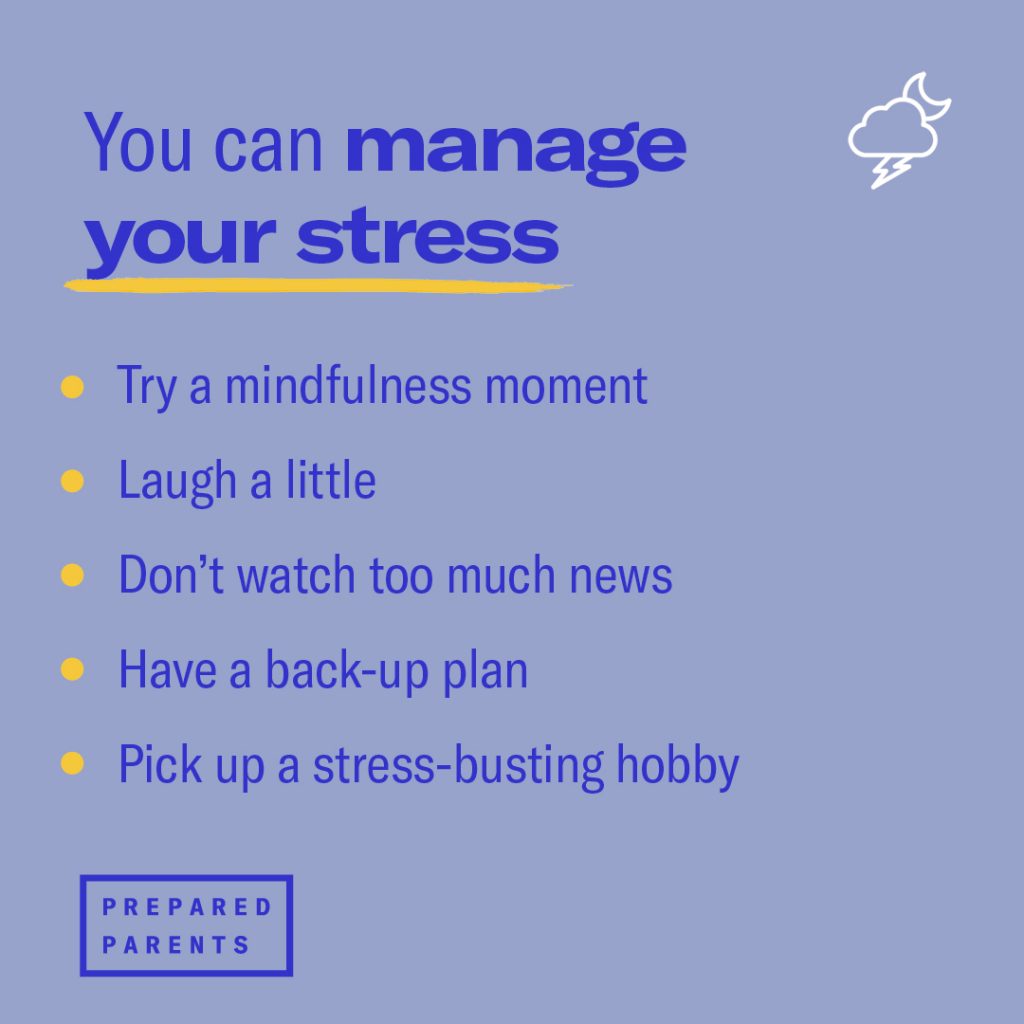In a crisis, it is more important than ever to find ways to manage our stress. And calming our kids’ frayed nerves while teaching them how to manage their own big emotions will set them up for success in the long-term.
We experience both negative (distress) and positive (eustress) types of stress in response to changes in life. Our natural reaction to a threat is known as fight, flight, or freeze—an immediate response. Longer periods of stress may result in our feeling anxious, depressed, or sad. We may experience headaches, digestive problems, trouble sleeping, and weight gain or loss.
Eustress, the positive kind of stress, causes the same physiological reaction as distress, but boosts positive responses like increased motivation, focused energy, feelings of excitement, and improved performance. Eustress enables us to develop habits and skills, like resilience and goal-setting, that motivate us towards positive growth. Kids who harness the power of eustress tap into the five power behaviors of self-directed learners that enable them to pick up new skills.
The Habits of Success are social and emotional mindsets and behaviors that set kids up for success in school and life. They were developed by educational psychologist Dr. Brooke Stafford-Brizard of education research non-profit Turnaround for Children, in her Building Blocks for Learning Framework.
Every kid needs a set of foundational skills that gives them the mental and emotional security it takes to engage and connect with others. These foundational skills, represented on the first row of the framework, include three Habits:
- Attachment: Having a strong bond with an adult who cares about me
- Stress management: Figuring out how to become calm and balanced when situations get stressful
- Self-regulation: Directing and maintaining my attention and emotions
When kids show up to school stressed or emotionally overwhelmed, they’re unable to focus on learning. Healthy development starts with strong parental or caregiver bonds, and is strengthened when our kids learn how to manage stress and emotions, so that they can focus on external goals.
How can we bust through our distress and find the benefits of eustress? Here are some tips for making the shift:

- Don’t watch too much news. Lots of exposure can have negative effects on both our, and our kids,’ well-being. Watching just 14 minutes of bad news can impact our health.
- Try a mindfulness moment. Mindfulness can improve mental health by aiding well-being, attention, self-regulation and social competency. It has been proven to lead to more happiness and productivity.
- Write down how you’re feeling. Research suggests that writing about yourself and your own experiences can improve mood and boost memory. Recording what’s happening today is valuable. It helps our minds process and understand what’s happening to us.
- Laugh a little. Laughter is a powerful coping mechanism that not only strengthens our immune system, but can stop a downward spiral and reframe our thoughts, and it’s a social emotion that binds people together.
- Get outside and connect with nature. It takes as little as five minutes outside to reduce stress levels. It improves your mood because it increases blood circulation to the brain and releases hormones that increase our sense of well-being.
- Have a back-up plan. When you have a back-up plan it’s easier to pick yourself up and move on with life. Plan for obstacles, but keep the focus on your ultimate goal.
- Pick up a hobby. Research found that enjoyable activities performed during leisure time are associated with higher levels of positive psychosocial states and lower levels of depression and negative effects.
Still struggling with stress?
Research suggests that stepping into your future self’s shoes can also reduce stress. According to the study, adaptive self-reflection—the act of self-distancing from future stressors—leads to lower levels of anxiety as well as fewer negative visualizations about what might happen. And it works for both adolescents and adults.

